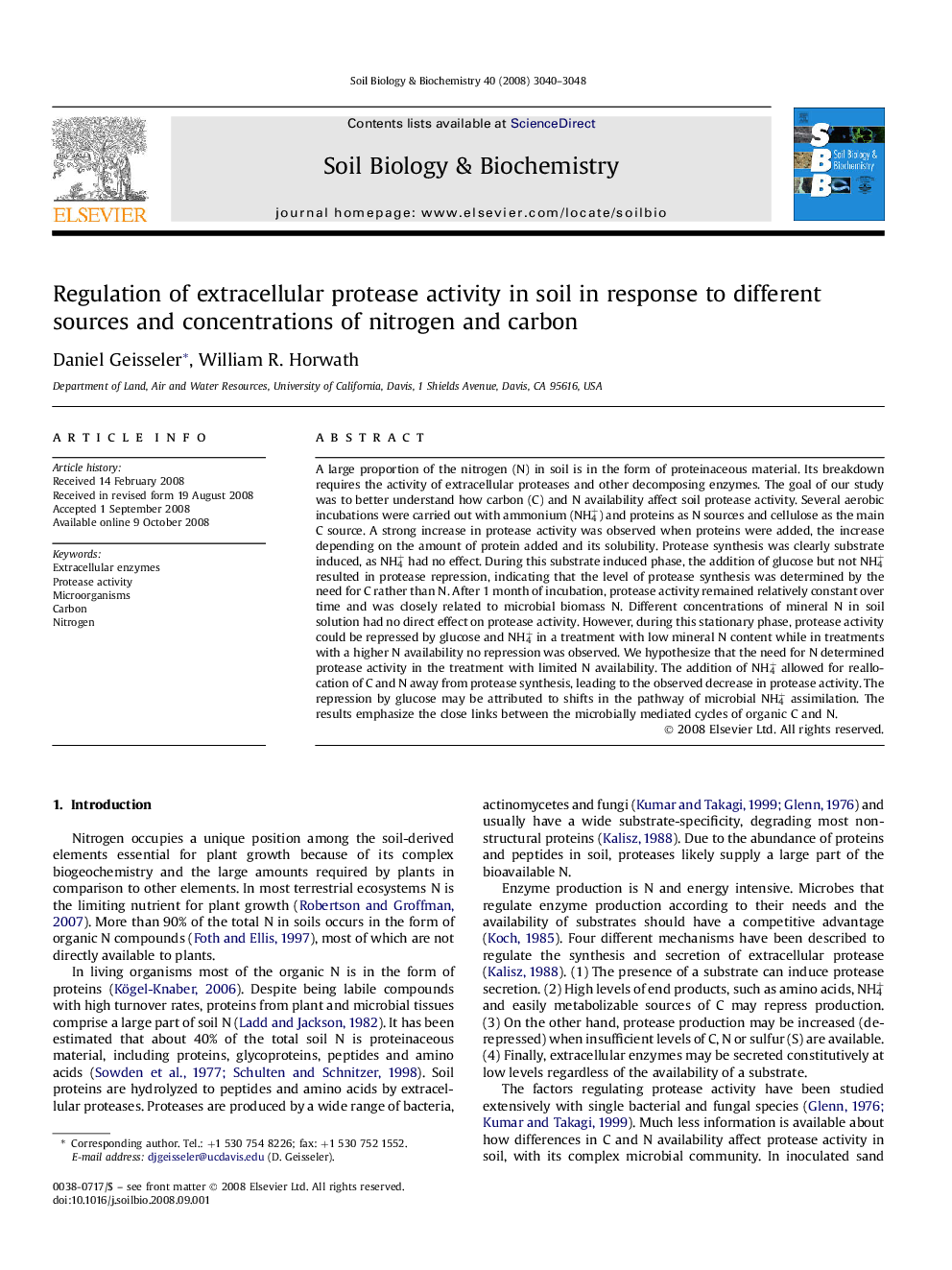| Article ID | Journal | Published Year | Pages | File Type |
|---|---|---|---|---|
| 2026303 | Soil Biology and Biochemistry | 2008 | 9 Pages |
Abstract
A large proportion of the nitrogen (N) in soil is in the form of proteinaceous material. Its breakdown requires the activity of extracellular proteases and other decomposing enzymes. The goal of our study was to better understand how carbon (C) and N availability affect soil protease activity. Several aerobic incubations were carried out with ammonium (NH4+) and proteins as N sources and cellulose as the main C source. A strong increase in protease activity was observed when proteins were added, the increase depending on the amount of protein added and its solubility. Protease synthesis was clearly substrate induced, as NH4+ had no effect. During this substrate induced phase, the addition of glucose but not NH4+ resulted in protease repression, indicating that the level of protease synthesis was determined by the need for C rather than N. After 1 month of incubation, protease activity remained relatively constant over time and was closely related to microbial biomass N. Different concentrations of mineral N in soil solution had no direct effect on protease activity. However, during this stationary phase, protease activity could be repressed by glucose and NH4+ in a treatment with low mineral N content while in treatments with a higher N availability no repression was observed. We hypothesize that the need for N determined protease activity in the treatment with limited N availability. The addition of NH4+ allowed for reallocation of C and N away from protease synthesis, leading to the observed decrease in protease activity. The repression by glucose may be attributed to shifts in the pathway of microbial NH4+ assimilation. The results emphasize the close links between the microbially mediated cycles of organic C and N.
Related Topics
Life Sciences
Agricultural and Biological Sciences
Soil Science
Authors
Daniel Geisseler, William R. Horwath,
